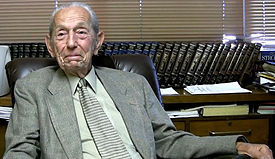 If you’ve ever felt out of place among all the exciting, expressive, emotional enthusiasm of a contemporary church service…or an evangelist’s demands that you need to constantly be sharing your faith boldly to strangers…if it simply wipes you out to be surrounded by people all the time, then you need to read Introverts in the Church: Finding Our Place in an Extroverted Culture, which released this year from Adam McHugh. It’s medicine for churchgoers like me who don’t necessarily feel at home in an evangelical culture that’s biased toward extroversion. So go read it.
If you’ve ever felt out of place among all the exciting, expressive, emotional enthusiasm of a contemporary church service…or an evangelist’s demands that you need to constantly be sharing your faith boldly to strangers…if it simply wipes you out to be surrounded by people all the time, then you need to read Introverts in the Church: Finding Our Place in an Extroverted Culture, which released this year from Adam McHugh. It’s medicine for churchgoers like me who don’t necessarily feel at home in an evangelical culture that’s biased toward extroversion. So go read it.
Anyway, Adam is a Presbyterian minister and chaplain in Claremont, California, and I’ve enjoyed getting to know him over the past several weeks. He was kind enough to help us turn the page, after this rapture nonsense, with something not at all related to Harold Camping. Which is exactly what I needed. Adam is currently working on a second book and kindly gives us a glimpse into his writing process with today’s guest post. Enjoy.
——————
A writer friend once told me that her writing process involved letting her ideas drip down from her mind through her arms and into her fingers. What a beautiful image, I thought to myself, and what a total load of crap. Writing a book is like giving birth to a snarling 8-headed monster. It’s a war, and your mind, arms, and fingers all hate each other.
Elsewhere I’ve said that writing is a spiritual discipline, one of those practices that consciously places us in the presence of God, that opens our souls to being transformed. And if that summons a picture of a monk reading his Bible serenely in a corner, think for a moment about your own process of praying and reading the Bible. If you make it 5 minutes without distraction (squirrel!), boredom, or drowsiness, then it’s been a big spiritual day for you. We must keep fighting to turn and return our attention to the Lord, to muffle the other voices that tell us we don’t measure up, that we’re not being productive enough, that we’re lost, that God doesn’t hear our prayers. The discipline of writing is no different.
Allow me for a few moments, O aspiring writer, to give you a window into the emotional life of a writer, or at least this writer. I’ve written one book and I’m at work on a second, and I’ve identified some patterns in this gnarly, self-revealing process, some phases that I invariably go through.
1. The “Aha” phase. This is the phase of researching, thinking, and interviewing. This is the phase of discovery, as I begin to see things I had not seen before. I have great synergistic moments as I talk with others and we find that we share thoughts, experiences, and hopes. I’ll be reading a book and a sentence or a concept will practically shout out to me. I’ll begin to believe that I have valuable things to say and that others will be interested.
2. The “Pulitzer Prize” phase. This is the phase of conceptualizing, organizing, and outlining. Inevitably I get here and my ego tries to leap out of my body and make itself known. Here I become convinced that my ideas are brilliant and my writing is profound. No one has ever written a book this sublime. Stephen Hawking will read my book and say, “Why didn’t I think of that?!”
3. The “Total Incompetence” phase. This one follows about 92 seconds on the heels of the Pulitzer Prize phase. I’ll encounter the first obstacle in writing my chapter, and my ego will not only find its way back into my body but shrink to 1/8th its normal size. This is where I will question everything I’ve ever known about the world and myself, including why in the world I thought I could write a book. This is where the dark scenarios creep in and I’ll imagine my manuscript sitting in my editor’s trash can, the smoke still floating off the singed pages. Or someone going to review my book and being unable to do so because the astonished tears of laughter keep her from being able to see straight.
4. The “Complete Disorientation” phase. Once I power through stage 3 and finish a draft of my chapter, I go to read it over and immediately move into this phase. My first draft tends to be rough and practically stream-of-consciousness writing. If I don’t know where something should go, I’ll just write it anyway. So it feels like a bunch of random paragraphs that have no organic relationship to anything that comes before them or after. It’s a salad bar of paragraphs, without the hygienic window that keeps me from sneezing all over it. My head will be spinning as I try to read it over. This is the phase where I find myself cleaning my apartment a lot — my manuscript may be a mess, but dammit, my writing space will be clean!
5. The “It doesn’t totally suck” phase. After rewriting several times, I get to a point where I think that maybe there are a few nuggets of insight in here and maybe a few people will actually want to read it. There is a small measure of contentment and sense of accomplishment here. Then, it’s back to step one.
On that note, I’m entertaining this title for my second book:
It Doesn’t Totally Suck
by Adam S. McHugh
So, if that is the bloody portrait of the writing life, why do we writers keep fighting? It’s certainly not because of the money. There are sidewalk lemonade stands that make more money than I do. I keep fighting the good writing fight not because one day I will triumph and what has been hard will suddenly become easy. I can’t say it any more simply than this: I write because I can’t not write. Writing is an irresistible grace in my life. It is a summons, a burden, that has been given to me, and I carry it trusting that God has put it there for a reason.
——————
Read more from Adam McHugh at his Introverted Church blog, on twitter, or in this excellent interview at Psychology Today. It doesn’t totally suck.

